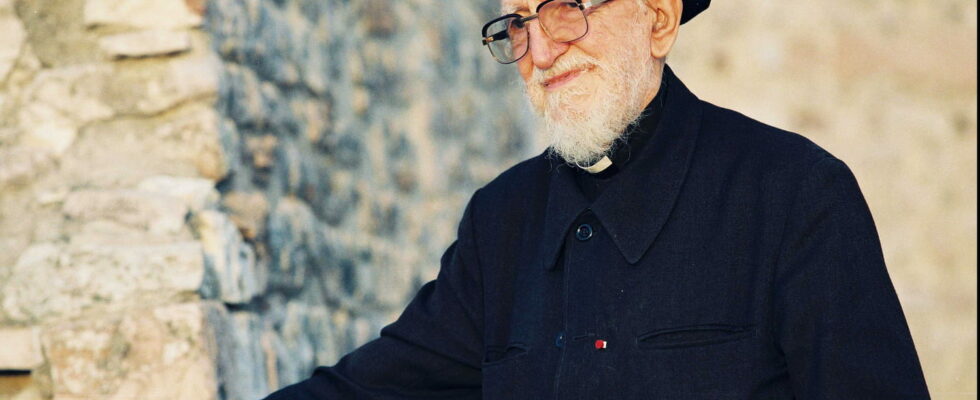The accusations of sexual violence against Abbé Pierre are multiplying. Reading his correspondence reveals a lot about how he was perceived by his peers.
Abbé Pierre is accused of sexual violence by many women. After the first seven testimonies in the spring, the revelations came one after the other. On September 6, 17 new accusations were reported, some of which concern facts that could be similar, according to their description, to rape. According to some of the testimonies, this behavior was known in several structures founded by the religious. The cases were often hushed up and Abbé Pierre even went so far as to threaten those who were aware of his alleged actions.
This is what the investigation unit of Radio France which looked at part of Abbé Pierre’s correspondence. In one of the letters, dated 1955, Abbé Pierre addresses Suther Marshall, an American student who had co-organized the abbé’s stay in the United States. During this trip, several women complained about the religious man’s behavior. This visit was even cut short at the request of the Catholic theologian Jacques Maritain, in order to avoid scandal.
Suther Marshall then decided to warn a relative of the one who was struggling against poor housing: “I saw so many things during the trip, ways of acting of the Father as an individual. I think, for example, in Chicago, when it had been explicitly decided that the condition of continuing the trip was that the father would never be alone. He agreed and after [il disparaissait] for hours, to the point of being late for a meeting,” he wrote. A letter that would not have pleased Abbé Pierre at all, who would have been threatening: “You promised not to get involved in this multitude of things where you only know how to accumulate devastation, chaos and infection. Know that not a single repeat will go unanswered, and if necessary [mes réponses seront] brutal, surgical.”
Abbé Pierre isolated to hush up affairs?
In 1957, particularly following this affair, the Church and Emmaüs reportedly wanted to put the religious man on forced rest. He was then sent to a psychiatric clinic in Switzerland, interned under the official pretext of “health reasons”. However, the real reason for this removal seems clear to Axelle Brodiez-Dolino, author ofEmmaus and Abbé Pierre, from franceinfo: “the fear of a sexual scandal. The Church needed Abbé Pierre who would restore its image and popularity and could not allow such a scandal to break out”. For six months, the abbé allegedly took numerous medications, which knocked him out, sometimes sleeping for “seven days in a row”. Emmaüs also allegedly demanded that Abbé Pierre step down from the leadership at that time.
However, Edmond Michelet, Minister of the Civil Service at the time, is said to have intended to decorate the abbot for his public action. The Archbishop of Paris, Cardinal Feltin, is said to have immediately reacted in a letter dated June 1958: “Let me assure you that at the present time, this distinction is very inopportune, because the person concerned is seriously ill, treated in Switzerland in a psychiatric clinic and I think that because of these very painful circumstances, it is better not to speak of this abbot.”
